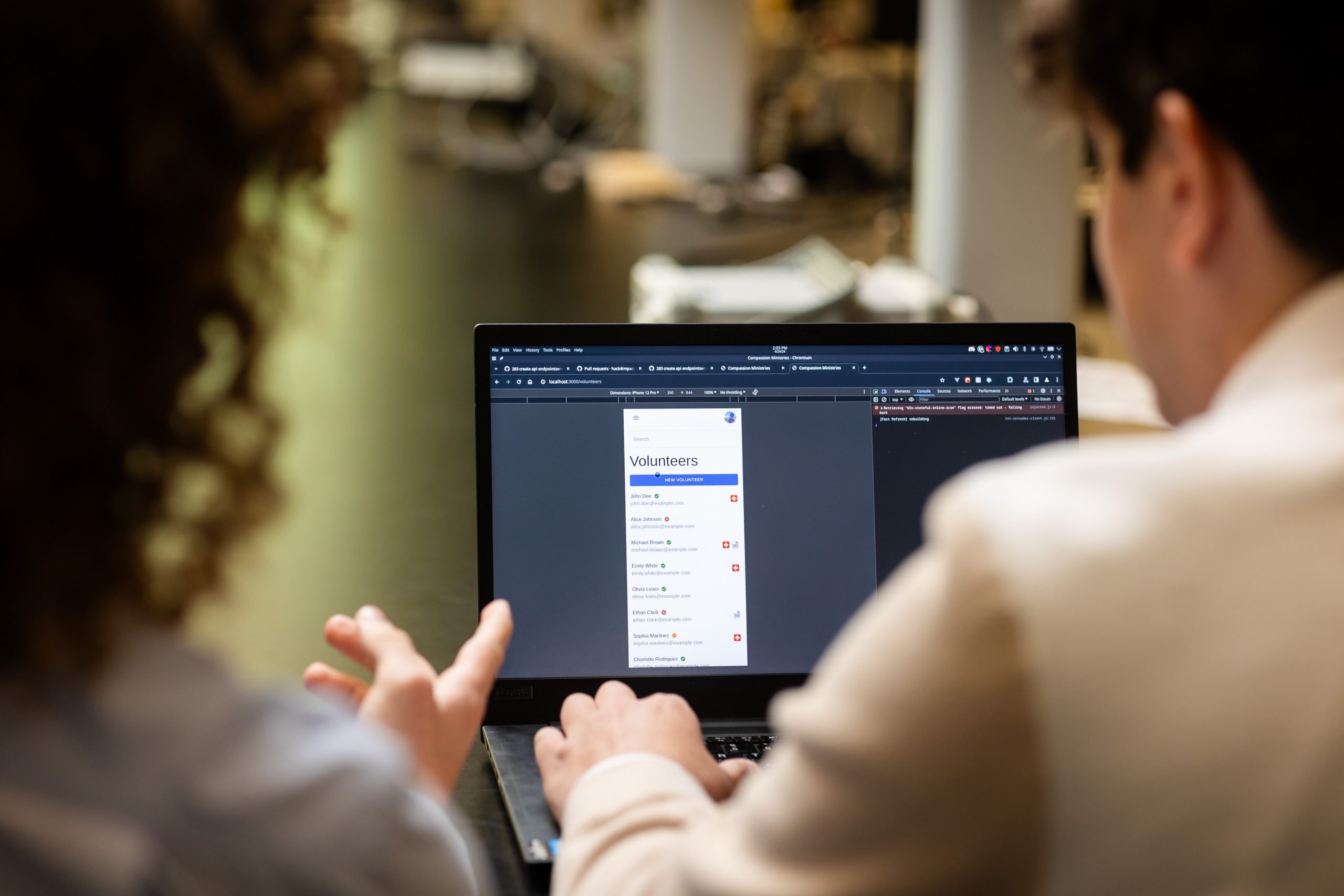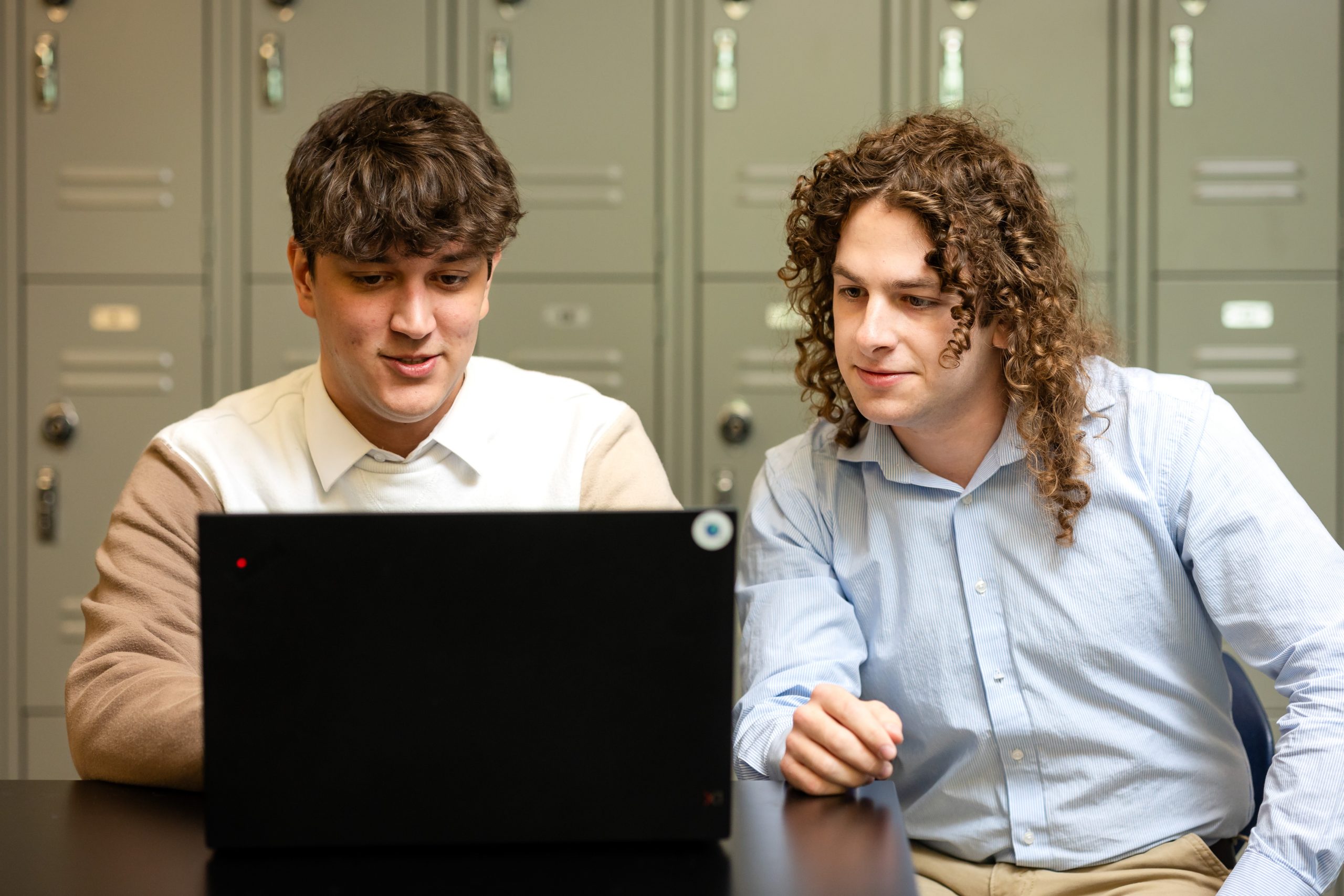The hours of paperwork spent tracking inventory and screening volunteers is a necessary part of Robin Rolland’s job as the executive director of Compassion Ministries. The Knoxville-based nonprofit feeds the hungry in East Tennessee and into Kentucky, Louisiana, and North Carolina.
Rolland knows there are faster options available, but the all-volunteer nonprofit’s budget is already stretched thin and can’t afford any technological upgrades without sacrificing how many people they can feed.
Students with Volunteer Spirit
Zavier Miller (BS/CS, ’24) and Andrew Rutter (BS/CS, ’24) offered a solution. They are providing their services for free. As part of their Senior Design project, the University of Tennessee computer science majors are building a tailor-made inventory management system and volunteer database for Compassion Ministries.
“It’s definitely a lot of work, but the big part for me is getting to see it actually make an impact,” Miller said. “There are not many opportunities that college students have to build something that is actually going to be used in the real world, so that is super cool. On top of that, you are positively affecting your community. That is why I love to do it.”

Rolland was thrilled when Miller and Rutter approached Compassion Ministries with their proposal. Miller and Rutter have attended two events run by the nonprofit to see how things operate, gather data, and find the best way to help.
“They have been very good to work with. They are very knowledgeable and very hands-on,” Rolland said. “They take constructive criticism and can look at things and adjust if they need to. It’s extremely valuable to have them doing this for us because there is no way we could do this otherwise.”
Need for Technology
Compassion Ministries has a mobile pantry that travels to different Tennessee counties, along with a large warehouse where it stores items like toiletries and clothing to give to clients. Rolland has been tracking it all with an Excel spreadsheet.
“What we are doing is essentially building her software to streamline the process to keep track of the inventory and perform audits of where the items are going,” Miller said. “We are also helping find a better way to manage all their volunteers and who is at events they run. It allows the personnel to spend less time worrying about that and more time helping out the Knoxville area.”
Inspiration from Hack4Impact
The idea for the project came from Miller and Rutter’s participation in the UT Chapter of Hack4Impact, an organization that connects student software developers with nonprofits and other socially responsible businesses to develop tools for social change.

The UT chapter was founded by Salena Xue (’22) and Vishal Aiely (’22). Miller and Rutter joined as first-year students and were given the opportunity to become co-directors of the organization this year.
“It’s really gratifying to use your actual major and the skills you have accumulated to impact the community,” Rutter said. “Both Zavier and I started our freshman year not knowing anything about how to build a website. By being on this team, we learned how to do that. It’s a great supplemental tool to have with our degree studies.”
The UT Hack4Impact chapter has worked with several nonprofits in the Knoxville community, including Second Harvest, the Community Coalition Against Human Trafficking, and Keep Knoxville Beautiful.
Professor Jian Huang was the advisor when UT launched its chapter in 2020. He’s proud of how much the membership has grown and attracted more diverse students over the last few years.
The ability for engineering students to give back to local nonprofits like Compassion Ministries while enhancing their skills is a mutually beneficial relationship that reverberates on many levels.
“Everyone has this understanding of how technology can be used to do good in this society,” Huang said. “It’s been great to see more students become dedicated to thinking more on behalf of wanting to help fix societal problems and not just make money. There is a lot of fulfillment that comes in all forms.”
Contact
Rhiannon Potkey (865-974-0683, rpotkey@utk.edu)
